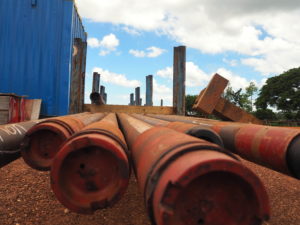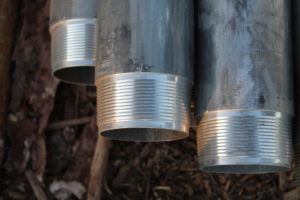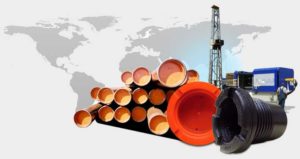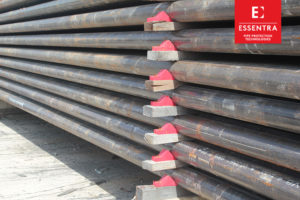Regular inspection and maintenance of drill pipes are crucial for the oil and gas industry. Billy Pugh Co. tallies 125 oil rigs in operation in the Gulf of Mexico, meaning drill pipe inspection companies stay busy. This article will explain why it’s important to get your OCTG pipes and drill pipes regularly inspected.
The Importance of Inspections
Inspections are necessary for safe drilling that is cost-effective and minimizes ecological problems. Inspectors will be able to give a baseline of the level to which a project is functioning, and help catch little problems that may end up being catastrophic.

What Do Inspectors Look For?
Inspectors check OCTG pipes and OCTG thread protectors for cracks, galls, pulls, and over-torque. They also check the seals for cracks or abrasions and any corrosion to the drill pipe equipment.
Inspectors operate using the API Standards. These standards outline non-destructive testing, or NDT, of drill pipes. These include:
- Visual inspection
- Magnetic particle inspection
- Wet magnetic particle inspection
- Ultrasonic scanning
- Liquid penetrant inspection Electromagnetic inspection
These thorough testing procedures allow the inspector to get a comprehensive understanding of the system. They check the metal on the drills in many different ways and can show the inspector what caused a warp. This means that inspections are important for more than treating problems. Inspections help you prevent them from happening, too.
Classification
The standards of the inspection and the evaluation of the pipe will both be categorized. The inspection may fall under one of four categories:
- Standard – Low-risk project with a short operating life.
- Moderate – Medium-risk project with a standard operating life.
- Critical – High-risk projects with longer operating lives.
- Extreme – Very high-risk projects that have very long operating lives.
An inspection will also be able to tell the quality of the pipes. They measure the thickness of the drill pipe wall in order to see how much wear has taken place. These categories are:
- New
- Premium
- Class 2
- Class 3

New pipes are the highest quality, meaning the pipe has never been used and shows no signs of wear. Of course, as soon as the pipe is used, it’s no longer new. Premium pipes mean that the remaining wall is 80% or more of the newly specified wall. Class 2 is 70% or more, and class 3 is less than class 2. The passing or failing of these pipes is dependent on the overall classification of the project.
Regular inspections work to keep things running smoothly. Even the most heavy duty thread protectors need to be inspected to ensure they are up to snuff. In order to avoid hiccups or catastrophic failures, schedule regular maintenance and inspection on your OCTG pipes. We offer premium threads and piping products and have been in operation for almost 40 years.




